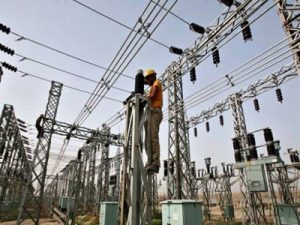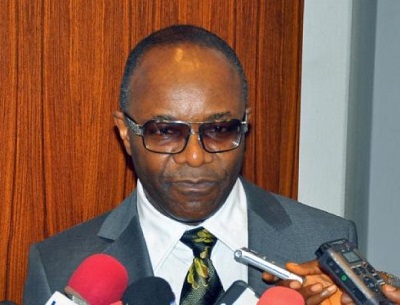Power Supply Drops Consistently for Two Weeks
 Electricity generation has dropped consistently for two weeks, averaging 3,400MW despite the fact that the Niger Delta militants have ceased to attack gas pipelines in recent months, media’s investigation has revealed.
Electricity generation has dropped consistently for two weeks, averaging 3,400MW despite the fact that the Niger Delta militants have ceased to attack gas pipelines in recent months, media’s investigation has revealed.
Power generation had hit an all-time high of 5,074megawatts on February 2, 2016 before the Niger Delta Avengers (NDA) and other militant groups launched fresh attacks on oil and gas infrastructure in the Niger Delta, which disrupted gas supply to power generating plants.
After the militant groups resumed attacks on gas facilities, the erratic power supply in the country was blamed on the activities of the militants.
However, with the Federal Government’s fresh initiatives led by the Vice President, Prof. Yemi Osinbajo and the Minister of State for Petroleum, Dr. Ibe Kachikwu to engage the relevant stakeholders in the oil-rich region, the militants have since declared a ceasefire.
Media gathered that despite this development, power generation has continued to dwindle, thus puncturing government’s claims over the years that the attacks on gas pipelines were responsible for the epileptic power supply in the country.
Investigation revealed that from a one-month daily peak of 4,452 megawatts recorded on March 22, peak generation had dropped consistently to 4,072.70MW on March 29.
The Daily Operational Report further showed that from the daily peak of 4,072.70MW on March 29, generation dropped consistently with daily peak dwindling to 3,737MW on April 5 and 3,903.30MW at the weekend.
Also the daily lowest generation, which was 3,638.60 megawatts on April 2, also dropped consistently to 3,200.20MW on April 5 and 3,289.40MW during the weekend.
With the poor generation in the past two weeks, electricity supply, which averaged 4,400MW four weeks ago, hovers around 3,400MW since the past two weeks, despite the relative calm in the Niger Delta.
Media had reported that while the generation and distribution companies have blamed poor supply on gas shortages and grid instability caused by weak transmission infrastructure; the Transmission Company of Nigeria (TCN) blamed the Discos for rejecting power allocated to them.
However, gas suppliers have argued that there is enough gas to generate power but that the generation companies cannot pay for gas.
But the Gencos have insisted that they are not able to pay for gas because they are being owed for the power they generated into the National Grid.
To address the liquidity challenges, the federal government had approved N701 billion intervention fund to assist the members of the electricity value chain to meet their obligations.’
But the electricity distribution companies under the aegis of the Association of Nigerian Electricity Distributors (ANED) argued that the N701 billion fund has the potential to worsen revenue shortfalls bedeviling the power sector.
ANED’s Executive Director in charge of Research and Advocacy, Mr. Sunday Oduntan, had described the fund as just a partial solution to the liquidity challenges of the sector.
“However, as commendable as this intervention is, we believe that it is a partial solution to the liquidity challenges of the sector. More so, as it holds the potential for exacerbating the revenue shortfalls that the market is currently suffering from. While an increase in electricity supply is the desired objective of everyone, such an increase without the requisite full recovery of cost via the appropriate pricing of power, means a resultant worsening of the market revenue gap,” Oduntan reportedly explained.







